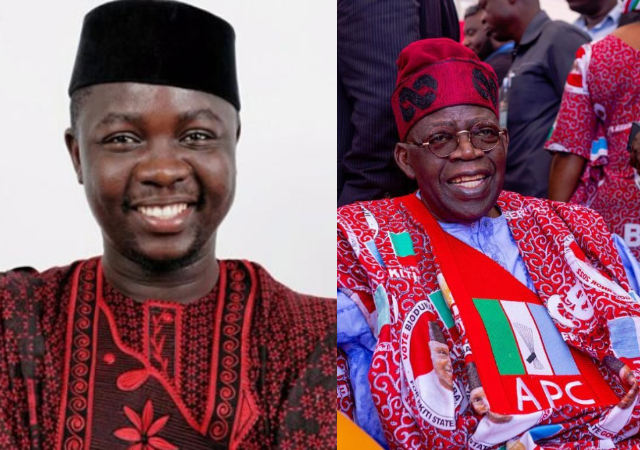Nigerian comedian Seyi Law has come out in strong support of President Bola Tinubu’s recent decision to remove the fuel subsidy, despite the hardships it has brought upon the nation. In a bold statement, Seyi Law asserted that this move, while painful in the short term, is a necessary step towards a more prosperous future for Nigeria.
The fuel subsidy, which was introduced in the 1970s to help Nigerians cope with rising global oil prices, has long been a topic of heated debate and a source of financial strain on the government. Seyi Law, who has been a vocal supporter of President Tinubu, believes that the subsidy should have been removed much earlier, arguing that if it had been lifted in 2012, the country would be in a better position today.
“Fuel subsidy should have been long gone. If it had gone in 2012 we would have gone through the pain process and by now we would have been healing,” Seyi Law stated, recalling his stance against the anti-fuel subsidy movement in 2012. He further cited the words of former Finance Minister Ngozi Okonjo-Iweala, who had warned that the nation was borrowing to pay salaries at the time.
The removal of the fuel subsidy has led to a sharp increase in fuel prices, resulting in higher transportation costs and a ripple effect on the prices of goods and services across the country. This has disproportionately affected lower-income households and has raised concerns about potential inflationary pressures on the economy.
However, supporters of the decision, including Seyi Law, view it as a necessary first step towards addressing the financial burden, corruption, and market inefficiencies that have long plagued the fuel subsidy system. They argue that while the short-term pain is undeniable, the long-term benefits of a more sustainable and efficient fuel market will ultimately outweigh the initial challenges.
Critics, on the other hand, have accused the government of insensitivity towards the plight of the common man, arguing that the sudden removal of the subsidy without adequate palliative measures in place has left many Nigerians struggling to make ends meet. Some have also questioned the timing of the decision, coming at a time when the nation is already grappling with economic challenges and rising unemployment.
Despite the backlash, Seyi Law has remained steadfast in his support for President Tinubu and his economic policies. In the face of numerous criticisms from online users, the comedian has declared that he will not abandon the government he helped bring to power, emphasizing his commitment to working alongside the administration to shape a better future for Nigeria.
I will continue to stand by my decision and work alongside the next administration to shape a better future for the country,” Seyi Law affirmed, expressing hope that Nigeria’s economic position will improve under President Tinubu’s leadership.
The fuel subsidy debate has long been a contentious issue in Nigeria, with previous attempts at reform met with fierce resistance and protests. In 2012, the government’s efforts to eliminate the subsidy were met with widespread demonstrations, forcing a partial reinstatement of the subsidy. The current administration’s decision to remove the subsidy entirely has reignited the debate, with both supporters and detractors making impassioned arguments for their respective positions.
As the nation grapples with the immediate effects of the fuel subsidy removal, all eyes are on the government to deliver on its promises of economic growth, job creation, and improved living standards for all Nigerians. The success or failure of this bold move will undoubtedly shape the legacy of President Tinubu’s administration and the future trajectory of the nation.
For Seyi Law and other supporters of the decision, the pain of the present is a necessary sacrifice for the promise of a brighter tomorrow. They remain hopeful that the removal of the fuel subsidy will pave the way for a more sustainable, efficient, and equitable economy, one that can provide opportunities and prosperity for all Nigerians, regardless of their socioeconomic background.
As the nation navigates this difficult transition, it is crucial that the government remains responsive to the needs and concerns of its citizens, working to mitigate the short-term impact of the subsidy removal while laying the groundwork for long-term economic growth and stability. Only through open dialogue, transparency, and a commitment to the greater good can Nigeria hope to emerge from this challenging period stronger, more united, and better prepared to face the challenges of the future.



